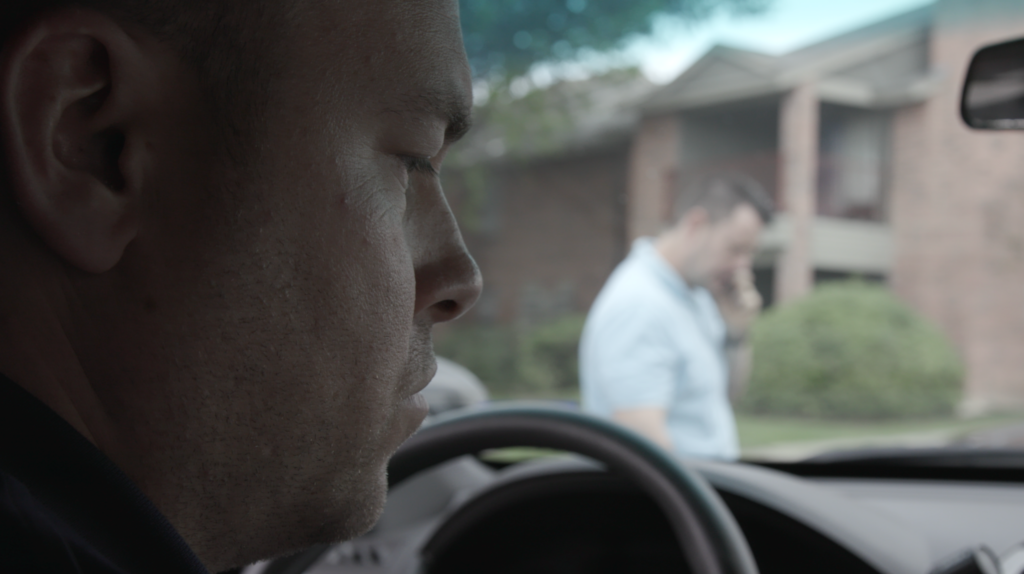Jenifer McShane is an award-winning documentary filmmaker. Her credits include “A Leap of Faith” and “Mothers of Bedford.”
“Ernie & Joe” will premiere at the 2019 SXSW Film Festival on March 11.
W&H: Describe the film for us in your own words.
JM: “Ernie & Joe” is an intimate portrait of two Texas police officers who are changing the way police respond to mental health calls. In doing so, they provide a powerful example to other first-responders — and to us all, really.
W&H: What drew you to this story?
JM: This story is somewhat unexpected but full of humanity, which is a compelling combination for me.
W&H: What do you want people to think about when they are leaving the theater?
JM: I want people to consider the magnitude of the general mental health crisis in this country and how we are struggling to respond to it. My hope is that communities across the country will recognize the importance of training law enforcement to de-escalate crisis situations and seek help with their own mental health struggles.
More personally, I hope the film generates conversation and action around the issue of decriminalizing mental illness. More mentally ill people in this country reside behind bars than in state hospitals. That is reason enough for this film to be made and seen.
Finally, I would love “Ernie & Joe” to help us all reflect on how we connect with each other during our daily lives. As Joe says, “Can we stop being so afraid? Can we be more honest?”
W&H: What was the biggest challenge in making the film?
JM: Aside from filming in the Texas heat, which was tough for this New Englander, I was striving to keep the experience as immersive as possible by using the calls to illustrate Ernie and Joe’s approach. It was a challenge and very important to me that the presence of me or my crew did not in any way impact the rapport that Ernie or Joe were developing on each call.
W&H: How did you get your film funded? Share some insights into how you got the film made.
JM: I first went out and spent time with Ernie and Joe without a camera. Once I had a sense of who these characters were and how meaningful their work was, I committed myself to launching the project.
The first shoot was on my dime. My first approach was to a funder who had been very supportive of my last film, “Mothers of Bedford.” I met with them to tell them about this project, suspecting the issues explored in “Ernie & Joe” would resonate with them. They were the first committed funders.
Once I had some sample footage, I started submitting for various grants. If you are outside of NYC and LA, make sure you seek out funders that are specific to your region. I reached out to LEF Foundation. They provide grants to filmmakers in New England, where I am based. Not only did they come in fairly early, but they have been tremendously supportive. The IDA Enterprise Fund was vital in making this film a reality by awarding a development and production grant to “Ernie & Joe.”
Securing funding is the biggest challenge for most filmmakers who do not have private wealth. I forged partnerships with private foundations that care about the issue of mental health in an effort to supplement the film funding I already had in place. There are so many great projects, and all are competing for a slice from a limited number of funding sources. Identifying funding organizations who may not traditionally fund films but understand the issues explored in your film can be a fruitful avenue.
W&H: What inspired you to become a filmmaker?
JM: I love a good story. It is incredible satisfying to be able to tell an important, authentic story in a way that may not have been done with the same care had I not made the film.
W&H: What’s the best advice you’ve received?
JM: Get more sleep and live life one day at a time.
W&H: What advice do you have for other female directors?
JM: Keep at it and trust your gut. So much of this work is about persistence. Most importantly, surround yourself with people who actually understand what you are trying to achieve.
W&H: Name your favorite woman-directed film and why.
JM: “Lovely & Amazing” by Nicole Holofcener. I really appreciate character-driven films that perfectly and quietly capture beautiful small moments, and she does this so well. I do my best to always remain aware of small, genuine moments in my own projects and try to include as many of those gems as I can. I think those are the moments that truly connect the audience to the characters. Plus, she always casts Catherine Keener, which is never a bad idea.
Greta Gerwig’s “Lady Bird” also had many of the same qualities I love.
W&H: It’s been a little over a year since the reckoning in Hollywood and the global film industry began. What differences have you noticed since the #MeToo and #TimesUp movements launched?
JM: I think it is far too soon to see any real changes.







